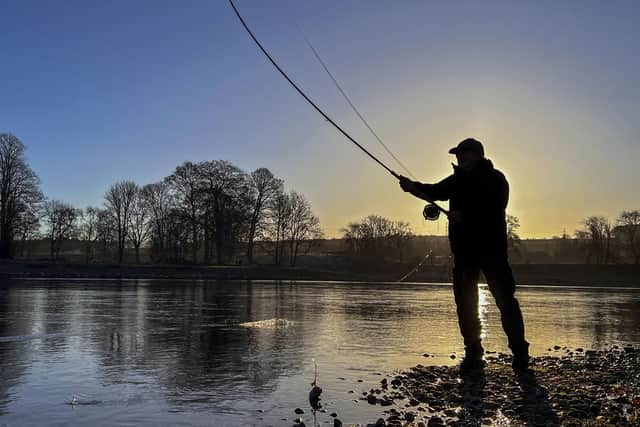Scottish Water accused of ‘covering up’ release of 'disgusting' sewage into river
Residents said material flushed from local toilets was still being released into the river, even after the water company covered over a metal grate that revealed the scale of the sewage debris.
The water giant, a publicly-owned company covering all of Scotland, said it had fixed a blocked pipe that was causing sewage to spill onto the banks of the River Tay at the village of Stanley.
Advertisement
Hide AdAdvertisement
Hide AdBrooke Labagh was shocked to discover sewage water coming up out of a metal grate along the river bank near her home in Stanley last summer.


She was also dismayed the metal grate, which lay on top of the pipe discharging the sewage into the river, was clogged with wet wipes, condoms, toilet paper and sanitary products.
Responding to the complaints, Scottish Water said in July that a blockage in the pipe meant sewage was “backing up and coming out of a metal grate”.
However, both Ms Labagh and her neighbour Nicola Murray said the water company carried out only superficial work by removing rocks from inside the pipe, before covering over the metal grate with concrete.
The local residents are angry and claim the same kind of sewage litter – wet wipes and other solid waste – is still flowing out of the pipe into the river.
“Every time it rains heavily, the sewage is still gushing out,” said Ms Labagh. “We still see wet wipes and sanitary pads washed up on the banks in the bushes near the pipe. It’s disgusting.”
She added: “They’ve just tried to hide the problem. They’ve literally covered it up.”
Campaigners across the UK are angry that water companies are allowed to discharge sewage via “combined sewer overflows” (CSOs) during periods of heavy rain.
Advertisement
Hide AdAdvertisement
Hide AdWhile the overflow points are designed to drain excess water to prevent flooding in people’s houses, they often lead to sewage being discharged directly into rivers.
Ms Murray, who lives in the village of Stanley, said: “I still see the wet wipes erupting out of the pipe. The smell of the sewage coming out is nasty. It can’t be good for the environment.”
A spokesperson for Scottish Water said last year’s blockage – caused by rocks inside the pipe – was preventing sewage “from exiting at the correct outfall and instead backing them up to come out of a metal grate”. They added: “We cleaned the grate, removed the debris and replaced the manhole cover with a more secure fitting to prevent opening during storm events.”
Scottish Water said the sewage water released from the pipe came from CSOs at a nearby waste water treatment works and local sewer network. But the sewage releases along this stretch of the River Tay are not monitored, the water company confirmed.
Figures released last month by Scottish Water showed that there were 21,660 recorded sewage dumps in rivers, lochs and waterways during 2023 – a 10 per cent increase on the previous year.
The document also revealed there were 630 CSOs in Scotland which had “sewage-related debris problems”. The company said improvement work was under way at more than 100 sites. But the Stanley stretch of the River Tay is not one of them.
Charles Watson, founder of the River Action UK campaign group, said the “unacceptable” level of sewage debris at hundreds of sites in Scotland “poses a huge risk to public health”.
He said: “Stronger regulation is urgently required.”
Comments
Want to join the conversation? Please or to comment on this article.